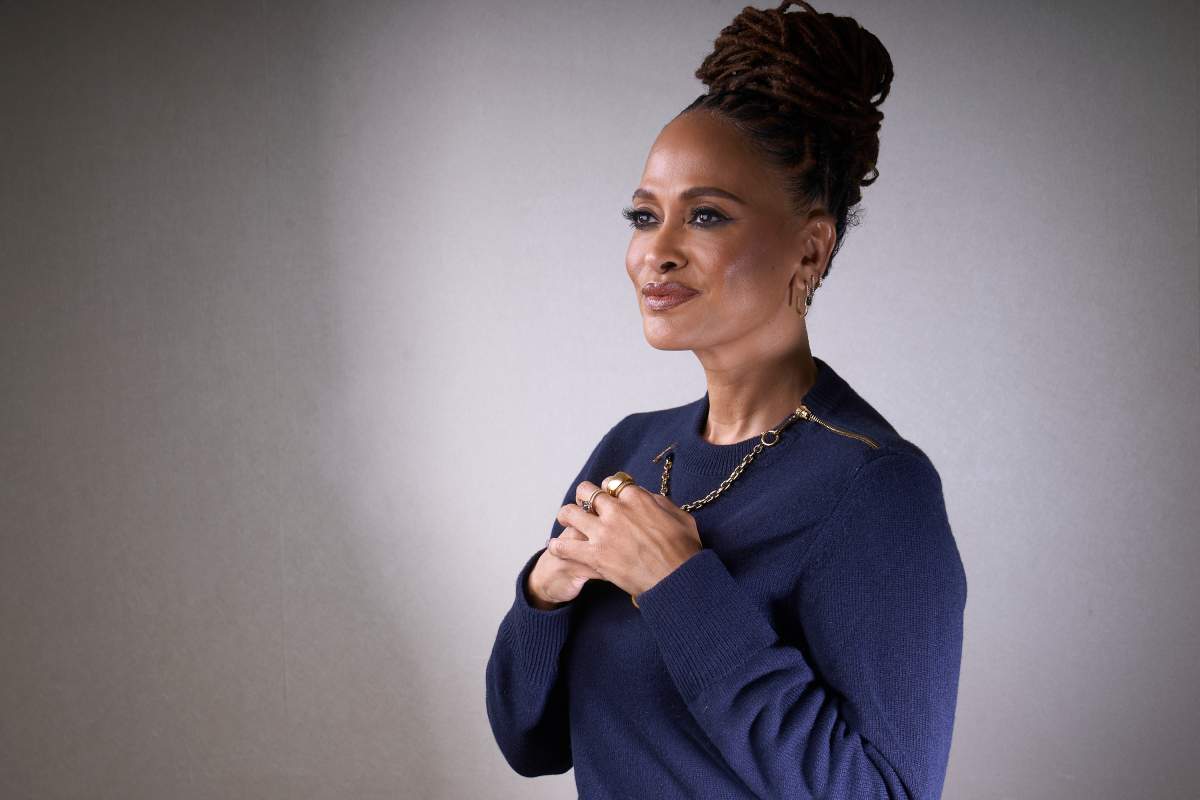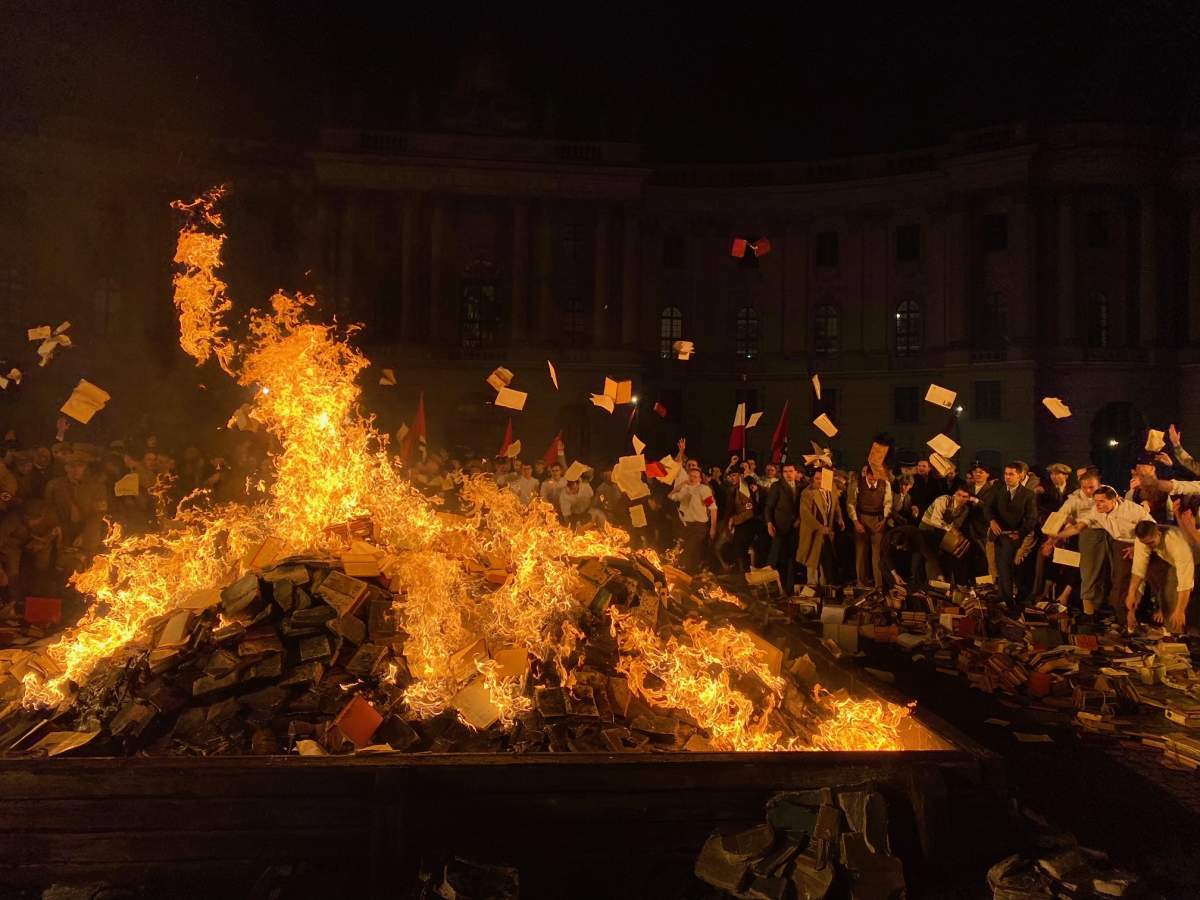Ava DuVernay‘s new film is a powerful investigation into oppression and how systems of subjugation around the globe have repeated and reproduced throughout history. Origin is thoughtful, emotional and will leave audiences interrogating the world and their place within it.

From the Indian caste system to Nazi Germany to slavery and Jim Crow in the U.S., Origin finds connections in the ways second-class citizens are made, and how repressive regimes maintain the status quo.
Origin premieres in theatres on Friday Jan. 19, and is based on the book Caste: The Origins of our Discontents by Pulitzer-prize winning author Isabel Wilkerson.
In a sit-down interview with Global News, DuVernay discussed the themes of the film and why she chose to adapt the non-fiction book as a narrative, focusing on Wilkerson’s own life and personal tragedies as she did research for the novel.
One key takeaway from Origin is that society ought to look at modern-day racism and discrimination through the lens of caste. In the case of the U.S., the movie argues, it’s not simply racism that divides Black, brown and white people, but also a system of laws and social norms that have consciously placed certain groups on top.
This system is the caste system: a stratification of social groups between superiority and inferiority. Under these systems, the unjust treatment of some is accepted as the norm, and neighbours come to justify the oppression of their own neighbours.
The most famous example of caste is the Hindu caste system in India that places Brahmans, historically priests and academics, at the top and Dalits, pejoratively called the “untouchables,” at the bottom.
Through a series of shocking historical flashbacks and storytelling from Wilkerson’s perspective, Origin seeks to convey that Nazi Germany was upheld through a caste system, and that the U.S. is living under a caste system of its own.
Taking this thesis to its natural conclusion, viewers could come out of Origin wondering if the whole world is dictated by caste.
Global News: What inspired you to take on this story and why did you choose to adapt it from the author’s perspective instead of as a documentary?
Ava Duvernay: Well, the book, I was told, was unadaptable — and that, I did 13th, so I’ll definitely be able to figure it out in a documentary form.
But I felt that when I was reading the book, there were stories in it that felt narrative to me, like the the Nazi man who wouldn’t heil. That’s one of the first passages in the book — a Nazi man who wouldn’t heil because he was in love with a Jewish woman.

Get breaking National news
Well, I want to see that. There’s no footage of it. I don’t want someone to just tell me about it in a chair, I want to see that happen. I want to see how much they love each other. I want to see what happens to them. There were so many stories like that in the book that I just thought: actors need to show us the heart of these historical stories. That, to me, was not a documentary.
And so then I had to figure out, how do I make people care about all these historical stories? So you need someone to guide you through the stories. Who will that be? Oh, the author. The woman who researched the stories. Oh, she could be researching. And then I can see it. It came together in a place in a way that was very natural and organized in my head.
The thesis of this movie, and this book, centres on connecting disparate struggles around the world. What do you think we gain from understanding these different struggles against oppression under a universal system of caste?
I think we gain a common language to talk about. How can you combat something if these people are talking about it this way and these folks are saying it just does this — but really, it’s all animated by the same idea underneath. And yet no one’s talking about that underneath.
It’s like NyQuil. NyQuil’s not fixing anything that’s wrong with you. It’s just dampening the symptoms. It’s making your sniffles go down. It’s making your sore throat not be so sore. But it’s still there. And the thing that caused it is still there because you haven’t been taking antibiotics. You’re taking NyQuil.
And so the antibiotics is what this film is. It’s saying identify, this is the disease underneath. And if you can’t even call that by name then you can never treat it. We’re just treating symptoms, and that’s how you still have a cold the next day.
So it’s really just trying to get some common language. If we have a common language, then maybe we could be talking about solutions, systems, strategies to make it better for the next generation instead of doing what’s been done for all these generations, which is just Band-Aids. Band-Aids on broken bones.
What do you want audiences to take away from this? What conversations do you want them to have after watching?
Everything. I want them to talk about everything because there’s so much in the film. I don’t want to prescribe.
Some people come away and they want to talk about book banning — which you’re seeing a lot of in our country; I don’t know about yours. Some people want to talk about manual scavengers and the people in India who are actually made to clean sewers for food. Some people want to talk about the fact that Nazi Germany’s laws were built on American segregation laws. Some people want to talk about their own grief and their own loss of loved ones.
There’s a lot in it, and I hope that everyone that goes in finds something that sparks them to think anew. The book has so many different stories; there’s at least one thing that’s going to grab you. I hope that in the film there’s one thing that grabs you. Well, I actually hope there’s two or three, but at least one thing that grabs you and makes you think, “Oh, I want to keep thinking about that.”
Seeing those narrative, historical flashbacks unfold really puts you in that feeling of pain that the characters on screen are facing. Was there any particular scene that you found really difficult to direct?
When I’m directing, I’m like RoboCop. I’m so prepped and prepared that I don’t really allow myself to get emotional or I can’t do my job. But when I get into the edit and I’m in a dark room just with my editor, and I’m going through the stuff, that’s when it really all comes out.
I think the the Trayvon Martin sequences really still make me cry to this day. A lot of folks have emotion around different parts of it. All of it is intense. But there’s something about Trayvon Martin that, I don’t know, it just takes me out almost every time I see it — the last frames of the movie. If I sit there and I really watch, it will make me cry and nothing else will. I’ve guarded myself against it, but the last bit, and anything to do with him, makes me emotional.
I just want to congratulate you on being the first Black American woman to have a film enter into competition at the Venice Film Festival. How does that feel for you?
It’s bittersweet. I think it’s a little ridiculous. It’s 2023. You know what I mean? I can’t just say, “Oh, thank you.” Really? It’s the oldest film festival in the world.
I said it on stage at the panel. It’s the oldest film festival in the world and 2023 was the first year it was decided and agreed upon that a Black woman from America’s voice deserved to be in competition. It’s not the first time a film was worthy, not the first time a film has been made that should have been there, but the first time they said, “OK, we’ll let this happen.”
If I say anything less than the fact that that is challenging to swallow then I’m being disingenuous. I think about all of the women who should have been there all these years and how its a shame they were absent. That’s no one’s shame but the festival itself.
How do you see the themes of Origin playing out in what we see on the news every day?
The world feels like it’s on fire. It’s been on fire for a while now. We are in a time where catastrophe seems to be all around us. And I think it’s really a question of what tools can we give ourselves to cope, to survive and to thrive. And for me, it’s always been educating myself. To me, it’s always been opening my mind to new ideas and leaning on the intellect and the expression of the creativity of others.
That’s really what I found when I started reading this book a few months after the murder of George Floyd, and looking for something to give me context, anchor me to the rest of humanity.
I believe in justice and dignity for all. Everyone should have what they need — and everybody needs different things — to live as a full, free human being. We won’t see it in our lifetimes. Everyone has their part to play to do a little better. And so that’s what I’m trying to do.
—
‘Origin’ opens in theatres across Canada on Jan. 19.












Comments